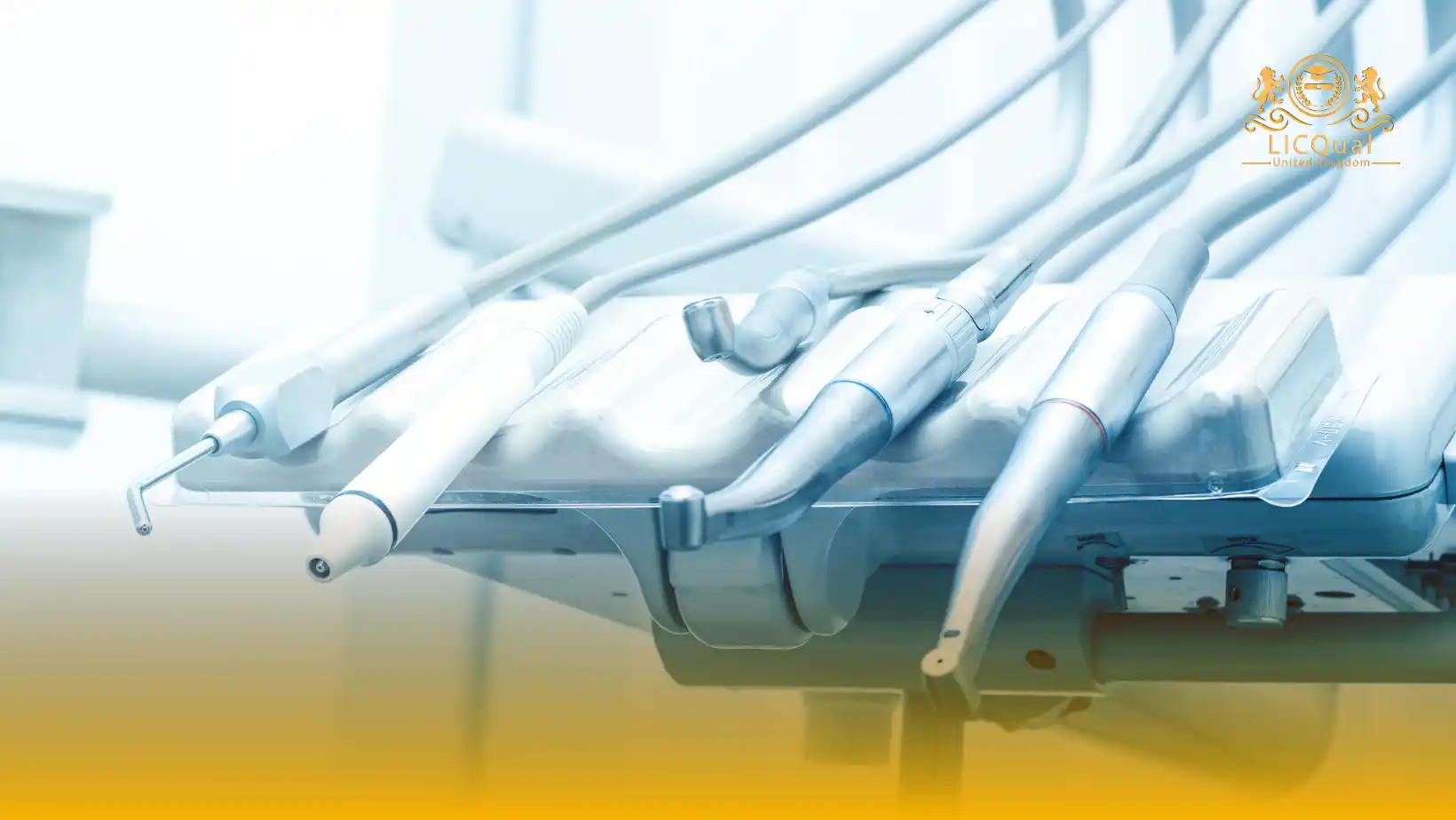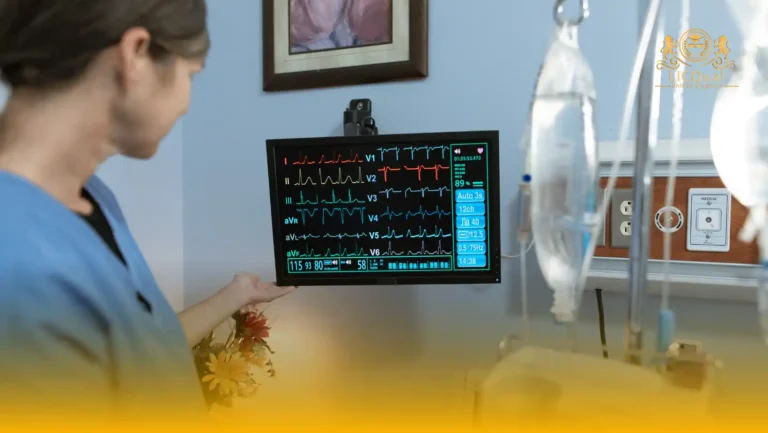The LICQual Level 7 Postgraduate Diploma in Periodontology (PgD Periodontology) is a prestigious, internationally recognized qualification designed for dental professionals who aspire to master the science and practice of advanced periodontal care. This Level 7 Postgraduate Diploma in Periodontology provides comprehensive, evidence-based training in the diagnosis, treatment, and management of gum diseases, as well as regenerative procedures and implant-related therapies. It equips learners with the skills needed to deliver high-quality care and improve long-term oral health outcomes for patients.
Through this advanced postgraduate diploma in periodontology, participants explore the latest clinical and scientific developments in periodontal therapy. The program covers essential areas such as non-surgical and surgical periodontal treatments, periodontal regeneration, soft tissue management, and the integration of implants into comprehensive dental care. By combining theoretical knowledge with hands-on clinical application, this LICQual Level 7 PgD Periodontology ensures learners gain practical expertise and confidence in managing complex periodontal cases.
Delivered by leading dental educators and industry specialists, this accredited postgraduate diploma in periodontology follows international standards and emphasizes a patient-centered, evidence-based approach. The curriculum incorporates case studies, guided practical sessions, and digital learning tools to provide a rich, interactive learning experience. This approach allows participants to refine their diagnostic skills, treatment planning, and clinical execution while staying up-to-date with innovations in periodontal care.
The LICQual Level 7 Postgraduate Diploma in Periodontology is ideal for dentists seeking specialization, dental hygienists and therapists expanding their clinical scope, or dental professionals pursuing academic and research opportunities. Its flexible study format accommodates working professionals, offering blended and distance-learning options to balance career commitments with advanced education.
Completing this international diploma in periodontology Level 7 not only enhances clinical expertise but also opens doors to career progression, specialist roles, and academic positions. Whether your goal is to elevate patient care, contribute to periodontal research, or establish yourself as a leader in advanced dental practice, this PgD Periodontology provides the knowledge, skills, and recognition needed to achieve professional excellence.
Course Overview
Qualification Title
LICQual Level 7 Postgraduate Diploma in Periodontology (PgD Periodontology)
Total Units
6
Total Credits
120
GLH
600
Qualification #
LICQ2200689
Qualification Specification
To enroll in the LICQual Level 7 Postgraduate Diploma in Periodontology (PgD Periodontology), applicants must meet the following criteria:
|
Qualification# |
Unit Title |
Credits |
GLH |
|---|---|---|---|
|
LICQ2200689-1 |
Advanced Periodontal Diagnosis and Risk Assessment |
20 |
100 |
|
LICQ2200689-2 |
Non-Surgical Periodontal Therapy and Maintenance |
20 |
100 |
|
LICQ2200688-3 |
Surgical Periodontal Techniques and Regenerative Procedures |
20 |
100 |
|
LICQ2200689-4 |
Interdisciplinary Periodontal Care |
20 |
100 |
|
LICQ2200689-5 |
Clinical Periodontology: Case Management and Practical Application |
20 |
100 |
|
LICQ2200689-6 |
Professional Practice, Ethics, and Continuing Professional Development in Periodontology |
20 |
100 |
By the end of this course, learners will be able to:
1. Advanced Periodontal Diagnosis and Risk Assessment
By the end of this unit, the learner will be able to:
- Critically evaluate the clinical and radiographic features of periodontal diseases.
- Identify systemic and local risk factors contributing to periodontal pathology.
- Utilise microbiological and diagnostic tools to inform treatment planning.
- Formulate comprehensive, evidence-based periodontal assessments.
2. Non-Surgical Periodontal Therapy and Maintenance
By the end of this unit, the learner will be able to:
- Apply advanced techniques in scaling and root surface debridement.
- Integrate adjunctive therapies such as antimicrobials and host modulation agents.
- Develop personalised maintenance protocols to sustain periodontal health.
- Evaluate treatment outcomes and adjust care plans for optimal patient results.
3. Surgical Periodontal Techniques and Regenerative Procedures
By the end of this unit, the learner will be able to:
- Perform advanced periodontal surgical techniques for disease control and regeneration.
- Select appropriate grafting and regenerative materials based on clinical indications.
- Manage complex periodontal defects using minimally invasive surgical approaches.
- Critically assess surgical outcomes and apply modifications where necessary.
4. Interdisciplinary Periodontal Care
By the end of this unit, the learner will be able to:
- Collaborate effectively with dental specialists to deliver integrated treatment plans.
- Incorporate periodontal therapy into orthodontic, restorative, and implant dentistry.
- Manage periodontal considerations in multidisciplinary dental rehabilitation.
- Apply evidence-based decision-making in complex interdisciplinary cases.
5. Clinical Periodontology: Case Management and Practical Application
By the end of this unit, the learner will be able to:
- Demonstrate advanced clinical skills in performing periodontal treatments.
- Maintain accurate and detailed clinical records for case documentation.
- Apply critical thinking and problem-solving in complex periodontal cases.
- Present and justify treatment outcomes through structured case presentations.
6. Professional Practice, Ethics, and Continuing Professional Development in Periodontology
By the end of this unit, the learner will be able to:
- Apply ethical and legal frameworks in periodontal practice.
- Communicate effectively with patients and the dental team.
- Develop and implement a personal CPD plan to enhance clinical competence.
- Engage with current research to inform and improve periodontal practice.
The LICQual Level 7 Postgraduate Diploma in Periodontology (PgD Periodontology) is designed for dental professionals who aspire to master advanced periodontal techniques and elevate their expertise in managing gum diseases and related oral health conditions. This program caters to those seeking professional growth, academic advancement, and international recognition in clinical periodontology. It blends theoretical excellence with hands-on clinical competence, ideal for both practicing dentists and aspiring specialists.
1. General Dentists Seeking Advanced Periodontal Skills
This course is ideal for general practitioners aiming to enhance their understanding and treatment of periodontal conditions.
- Learn advanced diagnostic and treatment planning for periodontal diseases.
- Gain expertise in both non-surgical and surgical periodontal procedures.
- Understand the principles of soft tissue regeneration and bone grafting.
- Improve patient management and treatment outcomes.
- Strengthen your professional credibility with a postgraduate qualification.
2. Dental Professionals Pursuing Postgraduate Specialization
Perfect for dentists aspiring to specialize in periodontology and advance their clinical career.
- Develop a deep understanding of periodontal pathology and therapy.
- Acquire specialized skills that meet international dental standards.
- Gain recognition as a periodontal specialist within your practice.
- Prepare for further postgraduate research or clinical training.
- Build confidence to manage complex periodontal and implant cases.
3. Implantologists and Oral Surgeons Expanding Expertise
Designed for professionals already working in surgical dentistry or implantology.
- Strengthen understanding of periodontal and peri-implant tissue management.
- Learn to prevent and manage peri-implantitis effectively.
- Enhance outcomes of implant procedures through advanced periodontal care.
- Master techniques in regenerative and reconstructive surgery.
- Integrate periodontal treatment into comprehensive oral rehabilitation plans.
4. Dental Hygienists and Therapists Seeking Career Growth
Suitable for dental hygienists and therapists looking to advance their clinical scope.
- Learn advanced debridement, scaling, and maintenance therapy techniques.
- Understand complex periodontal case assessments and documentation.
- Improve patient communication and motivation for oral hygiene.
- Collaborate effectively with dentists in periodontal care plans.
- Expand career opportunities in specialist practices and academic roles.
5. Academic and Research-Oriented Dental Professionals
Ideal for those pursuing teaching, research, or scholarly careers in dentistry.
- Conduct evidence-based research in modern periodontology.
- Learn to critically evaluate and apply emerging scientific literature.
- Gain skills in academic writing, presentation, and publication.
- Prepare for university-level teaching or research supervision roles.
- Contribute to global periodontal innovation and best practices.
6. International Dentists Seeking UK-Recognized Qualification
Perfect for overseas dentists aiming for international career progression.
- Earn a UK-accredited postgraduate diploma respected worldwide.
- Gain exposure to global periodontal standards and clinical approaches.
- Improve eligibility for advanced dental roles internationally.
- Study through flexible, distance, or blended learning formats.
- Join a network of international dental professionals and mentors.
7. Dental Practice Owners and Managers
A valuable program for dental leaders who wish to enhance service quality and professional standards.
- Introduce advanced periodontal treatments within your dental clinic.
- Mentor staff on modern techniques and patient care protocols.
- Increase patient satisfaction and clinical success rates.
- Strengthen your practice’s reputation with specialist services.
- Position your clinic as a leader in periodontal and implant care.
Centres delivering the LICQual Level 7 Postgraduate Diploma in Periodontology must meet rigorous standards to ensure that learners receive high-quality training, clinical exposure, and academic support.
1. Qualified and Experienced Staff
- Instructors must hold recognised dental qualifications and advanced postgraduate training in periodontology.
- Teaching staff should have substantial clinical experience and demonstrate ongoing Continuing Professional Development (CPD) in periodontal care and dental education.
2. Suitable Facilities and Learning Environment
- Access to fully equipped clinical training areas, including dental chairs, periodontal instruments, surgical kits, and ultrasonic devices.
- Lecture rooms with appropriate seating, lighting, and audio-visual resources for effective theoretical learning.
3. Access to Clinical Cases and Practical Training
- Centres must provide opportunities for supervised clinical practice on patients or approved simulation models.
- A variety of case types must be available to meet learning and assessment criteria.
4. Learning and Assessment Resources
- Availability of up-to-date periodontal textbooks, academic journals, and digital learning platforms.
- Access to diagnostic and treatment planning tools such as radiography, periodontal probes, and imaging software.
5. Quality Assurance and Compliance
- Implementation of robust internal quality assurance (IQA) processes to maintain high delivery standards.
- Compliance with all relevant health, safety, and infection control regulations for dental practice.
6. Learner Support
- Provision of academic guidance, clinical supervision, and mentorship throughout the programme.
- Regular feedback systems to monitor learner progress and ensure professional growth.
Assessment and Verification
All units within this qualification are subject to internal assessment by the approved centre and external verification by LICQual. The qualification follows a criterion-referenced assessment approach, ensuring that learners meet all specified learning outcomes.
To achieve a ‘Pass’ in any unit, learners must provide valid, sufficient, and authentic evidence demonstrating their attainment of all learning outcomes and compliance with the prescribed assessment criteria. The Assessor is responsible for evaluating the evidence and determining whether the learner has successfully met the required standards.
Assessors must maintain a clear and comprehensive audit trail, documenting the basis for their assessment decisions to ensure transparency, consistency, and compliance with quality assurance requirements.







